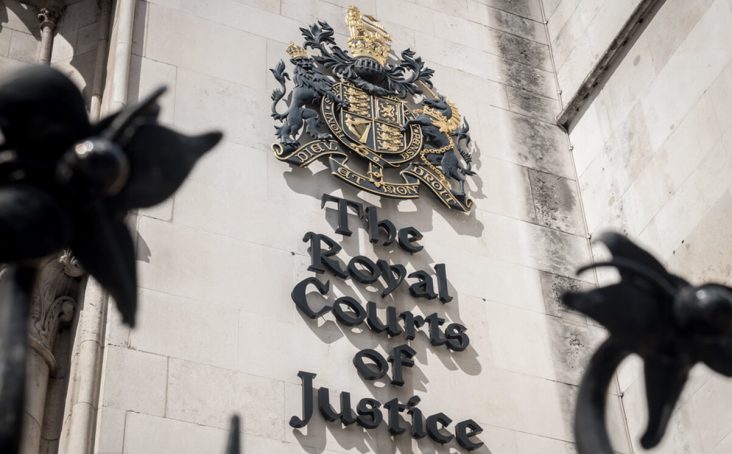We are the pre-eminent divorce and family practice in the UK, ranked No.1 in both The Legal 500 and Chambers. We act for high net worth individuals based in the UK and overseas.
Annulment vs divorce – what’s the difference?
Deciding to end a marriage is never easy and can be a source of extreme stress and anxiety. It can feel overwhelming with so many thoughts and feelings involved, and often children and financial issues to resolve. It can also be difficult to know the best way to proceed: a divorce or an annulment?
But what is an annulment, and how does it differ from divorce? We explore annulment and divorce and their differences and answer questions about the relevant legislation.
What’s an annulment?
An annulment is a legal ruling that ends a marriage by declaring it void. It legally erases the marriage and declares it was never valid or technically existed.
When can you get an annulment?
Although an annulment is often applied for within the first year of marriage, you can apply for an annulment at any time, no matter how long you have been married. The exception is if an annulment is being sought under one or more of the conditions for a ‘voidable’ marriage (see below). In such cases, proceedings must be started within three years from the date of marriage, or permission must be sought from the court. Generally, if it is some time into the relationship, you may need to explain the reason for the delay in applying for an annulment.
How do you get an annulment?
You can apply for an annulment as soon as you get married and do not have to wait a year like with a divorce.
The jurisdictional requirements to apply for an annulment mirror those for divorce and include the applicant and/or respondent being habitually resident in England and Wales or either or both spouses being domiciled in England and Wales.
You will need to show that the marriage was never legally valid or ‘void’, meaning it was never valid under the law in the first place. This can occur in several ways, such as:
- You or your spouse were under 16 when you got married
- You are closely related
- One of you was still married or in a civil partnership with someone else when you got married
Another way is if the marriage was valid but now meets one of the required ‘voidable’ criteria, such as:
- If the marriage was not consummated – though this is not valid for same-sex couples
- If no proper consent was given for the marriage, ie you were forced into it
- If your spouse had a sexually transmitted disease (STD) when you got married
- If your spouse was pregnant with someone else’s child when you got married
- If one spouse is in the process of transitioning to a different gender
- If one spouse had a mental disorder at the time of the marriage
If you believe you fall into one of the above criteria and wish to annul a marriage, you need to fill in a ‘nullity application’.
How long is the annulment process?
It can take a minimum of 26 weeks (or six to eight months) for the annulment process to go through the courts as several steps must be taken, starting with the ‘nullity application’.
Once a nullity application is completed and filed with the court, your spouse has 14 days to acknowledge service of that application and respond as to whether or not they agree the marriage should be annulled. If they agree, you can apply for a ‘conditional order of nullity’, confirming that the court has no reason not to annul the marriage. In your application, you must confirm that your spouse has signed the acknowledgment of service (if applicable, or confirm they have not filed an acknowledgment of service) and that everything set out in your nullity application is true.
You then need to wait for the ‘conditional order of nullity’ to be granted. After a further six weeks, you will need to apply for a ‘nullity of marriage order’. This is the final document that says the marriage has been annulled.
In most cases, the court will check the reasons for the application and then send you the ‘nullity of marriage order’ (final order). This confirms you are no longer married and were never legally married. In some cases, you may need to go to court even if your spouse agrees to the annulment.
Annulment vs divorce: an overview
Annulment
What is it?
Annulment is a way to end a marriage by declaring it void (or voidable).
When can I get it?
At any time after marriage.
How long will the process take?
If both parties agree, six to eight months.
Is it recognised under UK law?
Yes.
Can I complete the process if I was married abroad?
Yes.
Are there any criteria that have to be met?
By showing your marriage was never legally valid or ‘void’, such as:
- You or your spouse were under 16 when married
- You are closely related
- One of you was still married or in a civil partnership with someone else when you got married
Or by demonstrating that the marriage meets the required ‘voidable’ criteria:
- If the marriage was not consummated – though this is not valid for same-sex couples
- If no proper consent was given for the marriage, ie you were forced into it
- If your spouse had a sexually transmitted disease (STD) when you got married
- If your spouse was pregnant with someone else’s baby when you got married
- If one spouse is in the process of transitioning to a different gender
- If one spouse had a mental disorder at the time of the marriage
Do both parties need to agree to start proceedings?
No.
When can I no longer start the legal process?
When the criteria are no longer met.
Can I remarry once the proceedings are finalised?
Yes.
What if I’m in a civil partnership?
A civil partnership can be annulled in the same way as a marriage, save that a civil partnership between a same-sex couple cannot be terminated by nullity due to the non-consummation of the relationship.
Divorce
What is it?
Divorce is a common way to end a marriage whereby one spouse states that the marriage has irretrievably broken down.
When can I get it?
After at least one year of marriage.
How long will the process take?
If both parties agree, approximately six to eight months.
Is it recognised under UK law?
Yes.
Can I complete the process if I was married abroad?
Yes.
Are there any criteria that have to be met?
The applicant (or the couple jointly) must make a statement that the marriage has irretrievably broken down.
Do both parties need to agree to start proceedings?
No.
When can I no longer start the legal process?
There is no time limit on divorce once the minimum one year of marriage is met.
Can I remarry once the proceedings are finalised?
Yes.
What if I’m in a civil partnership?
You can file for legal separation or a civil partnership dissolution, which is equivalent to a divorce.
Annulment questions answered
Can you get an annulment under UK law?
Yes, an annulment is available in England or Wales under UK law, providing the criteria are met.
Can you get an annulment in the UK if you get married abroad?
Yes, if the marriage abroad is legally recognised in the UK, you can get your marriage annulled. However, it is important to note that if your marriage certificate is not in English, you must provide a translation of the certificate in English or Welsh from an authorised translation company.
What grounds can you get an annulment?
There are two ways in which a marriage can be annulled.
You will need to show that the marriage was never legally valid, or ‘void’, meaning it was never valid under the law in the first place, such as:
- You or your spouse were under 16 when married
- You are closely related
- One of you was still married or in a civil partnership with someone else when you got married
Another way is if the marriage was valid but now meets one of the required ‘voidable’ criteria, which include:
- If the marriage was not consummated – though this is not valid for same-sex couples
- If no proper consent was given for the marriage, ie you were forced into it
- If your spouse had a sexually transmitted disease (STD) when you got married
- If your spouse was pregnant with someone else’s baby when you got married
- If one spouse is in the process of transitioning to a different gender
- If one spouse had a mental disorder at the time of the marriage
Do both parties need to agree to get an annulment?
No, technically, both parties do not have to agree. As it is a declaration that the marriage was either not valid or now ‘voidable’, there are not often grounds for both parties to disagree. However, if one spouse does not agree, it can lengthen the process and is more likely to require a court hearing.
How quickly after marriage can you get an annulment?
You can apply for an annulment as soon as you are married and at any time after that. However, it is important to note that if an annulment is not applied for within the first year, questions may be asked about the reasons for the delay in making the application.
When can you no longer get an annulment?
You can no longer get an annulment if the criteria are no longer met, for example, if the marriage is consummated. However, there is no time limit for applying for an annulment (save for applications based on a voidable marriage).
Can you remarry after an annulment?
Yes, you can remarry after an annulment. An annulment means the marriage is void and wiped from the records.
How are assets split in an annulment?
In England and Wales, an annulment does not end the financial relationship between you and your spouse. Instead, an application for financial settlement must be made to the court to enable matrimonial property or assets to be formally divided.
You can also split assets outside of court. However, by not formally severing the financial bond between you and your spouse, you could both be legally able to make a financial claim against one another. Therefore, it is best to have a binding court order stating the financial arrangements with your spouse.
What is dissolution?
Dissolution is a term used to describe the formal ending of a civil partnership between partners. An application must be made to court no earlier than one year into the civil partnership. Before this one-year mark, a legal separation is needed instead.
Similarly to an annulment, a civil partnership must meet certain criteria to allow a dissolution in England and Wales. Paperwork must also be sent to court, and finances should be legally divided outside the dissolution process.
Legal advice on annulments and divorce
Whether you’re considering annulment or divorce, it is important to seek legal advice. A family law solicitor can talk through your options and help guide you through the process. Separating from your spouse can be difficult and emotional, with lots of thoughts and questions. In addition to ending a marriage from a legal perspective, you may have to resolve issues around children, finances, property and other assets.
An experienced and specialist solicitor will help you through the process and achieve the best outcome possible for you and your family. Not only will they be able to guide you through the relevant options, but they will also advise on the next steps going forward, helping to minimise stress and anxiety during this difficult time.
-
Agreements
-
Children
-
Divorce and separation
-
Financial provision
-
Court and alternatives
-
Resources
"They have star performers, strength in depth and the support of first-class supporting departments. That's the mark of a top-tier firm"
Chambers High Net Worth
"Stewarts' divorce and family team is a litigation powerhouse that has a top array of vastly experienced lawyers"
The Legal 500
"Highly sought after by high-profile clients and ultra high net worth individuals. Well versed in handling matrimonial proceedings with international elements, complex matrimonial finance matters, private children law and cohabitation disputes"
Chambers
Meet the Divorce and Family team
Our team is the pre-eminent divorce and family practice in the UK, ranked No.1 in both The Legal 500 and Chambers.
In an article in The Times, head of department Stephen Foster is “praised for leading Stewarts’ phalanx of family lawyers to the top of the pack”.

If you require assistance, please call us or email your enquiry.
Featured case
Court of Appeal judgment confirms that a child’s welfare is paramount in decisions regarding relocation within the UK.

Stewarts Private - Dispute Management
Stewarts Private is a dedicated dispute management service that helps our clients avoid, manage and resolve disputes. We provide strategic advice to assist in navigating serious, complex and challenging situations.




